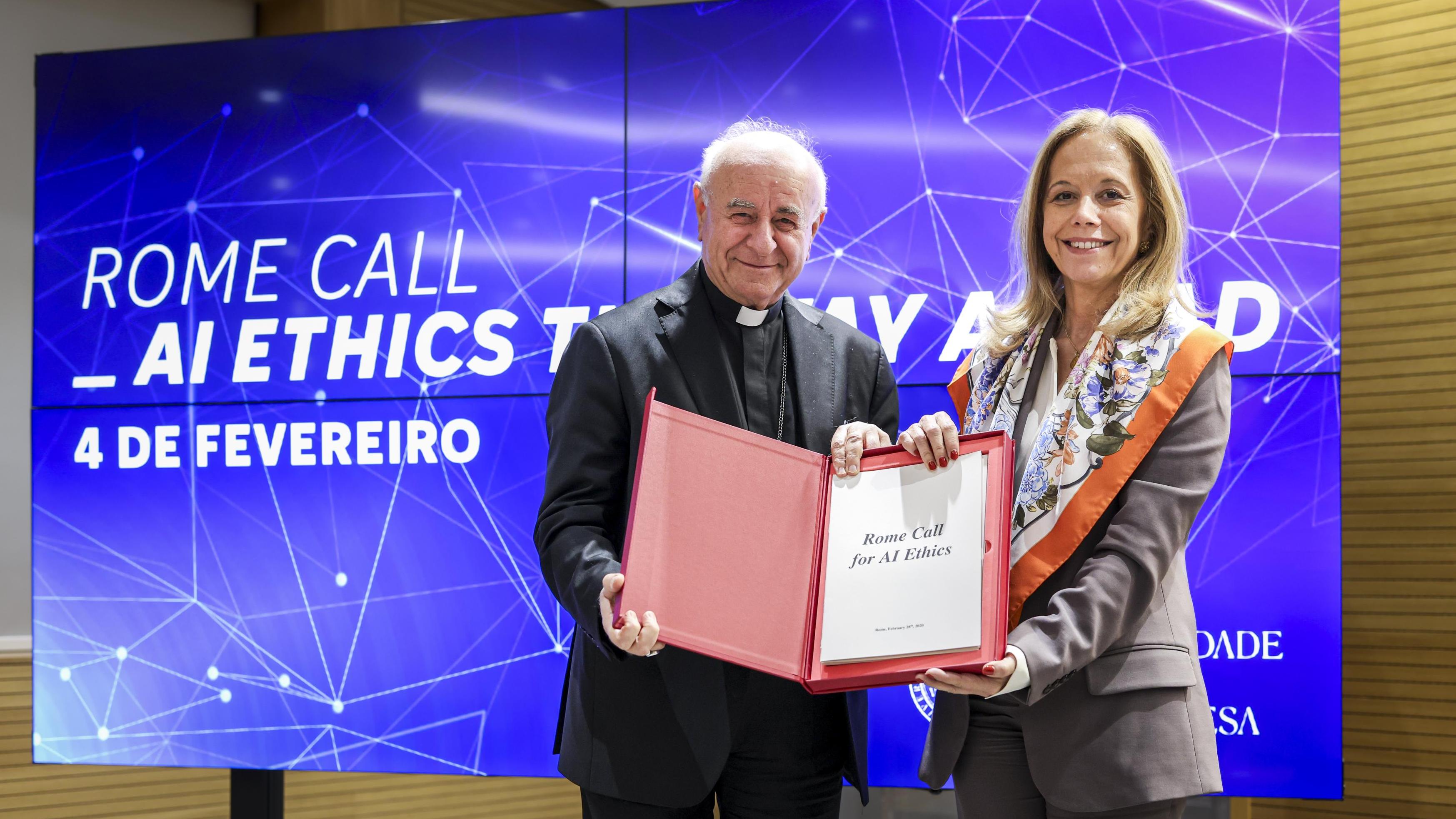
On February 4th, Universidade Católica Portuguesa organized the Rome Call: AI Ethics The Way Ahead, an international meeting that culminated in the signing of the Rome Call document, developed by the Pontifical Academy for Life, Microsoft, IBM, FAO and the Italian Ministry of Innovation.
At the opening of the event, Isabel Capeloa Gil, President of Universidade Católica Portuguesa, said that the “patent developments in the field of artificial intelligence affect the way we teach, the curriculum, our relationship with students, interpersonal relationships, but also university management models, the way we manage people, how we manage our activity”.
The agreement signed between Católica and the Pontifical Academy for Life “is a guide and an orientation for what will necessarily be something that is part of our mission”, for “a future that we want to be one of greater development for humanity”, summarised Isabel Capeloa Gil.
Also for Archbishop Vicenzo Paglia, president of the Pontifical Academy for Life, ethics must accompany the entire cycle of technology design and production, from the moment we choose which projects to invest in.
With this in mind, he introduces the idea of “Algoretics versus Algocracy”, arguing that ethics must also be associated with the creation of algorithms. “The concept of Algoretics highlights the importance of the link between technology and ethics for human development that is worthy of humanity”, believes Vicenzo Paglia, who also stresses that ROME CALL aims to contribute to “humanising technology and not technologizing men”.
The signing ceremony also included a talk by Arlindo Oliveira, a professor at the Instituto Superior Técnico, in which he emphasised the importance of thinking about the ethics of artificial intelligence. “Any technology raises significant ethical questions”, he said, giving examples such as steam engines, electricity or nuclear energy. However, “perhaps artificial intelligence raises more because it is such a powerful technology” and because, as such, it “raises risks”.
Starring representatives from Cisco, IBM and Microsoft, also signatories of the document, there was also a round table discussion, moderated by William Hasselberger, director of the Digital Ethics Lab.
Lara Tropa, from IBM, emphasised that technology must “be at the service of human beings. And artificial intelligence will be at the service of human beings to increase and contribute to making their lives better. It will increase human intelligence”.
Miguel Almeida, from Cisco, argued that “technology has to be available to everyone, at the same level” in order to boost inclusion. And the development of artificial intelligence should be seen as a positive process and a collective responsibility.
And for Abel Aguiar, from Microsoft, “artificial intelligence only makes sense if it is an intrinsic mechanism for amplifying human capacity”, which brings greater efficiency and the ability to solve complex problems, with the human being responsible for ensuring that it is used “as a tool and not as a weapon”.
In his speech at the end of the event, the Chancellor of Católica, Mgr Rui Valério, emphasised that “artificial intelligence is at the service of ethics, because it is at the service of the principle that the human being is an end in itself”.
“My wish is that artificial intelligence will make a significant contribution to my progress as a human being, that it will help me to be more supportive, more free”, he concluded.


